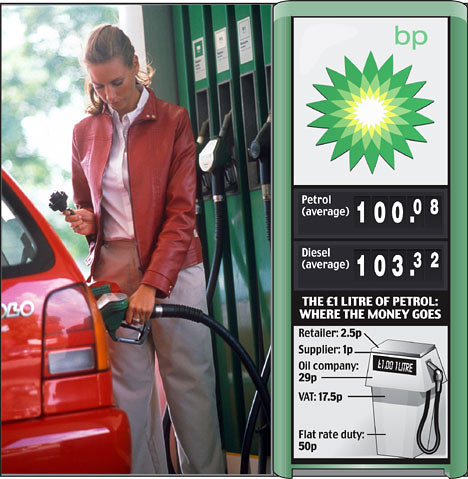Gasoline prices, roads, who pays for what, electric cars, etc.: why the argument is all f*ed up
"Gallon of Gas," by The Kinks, 1979. A lot of people in the blogworld are too young to be familiar with this song, which was written a few years after the "Gasoline Crisis" of 1973.
One of the lines of business my firm works on is bicycle sharing and one of the questions on most requests for proposals is the use of environmentally-friendlier vehicles for operations (in other words, the vans and trucks that do rebalancing and repair).
The Capital Bikeshare system uses Mercedes Sprinter vans which are probably diesel, but not electric. So I contacted a firm with US and British operations, because they make a van like the Sprinter, but fully electric, although the van is available in the UK but not the US, to see if they would be willing to launch it in a U.S. city where we hope to win a bicycle sharing contract.
They said that there is no way that it would be profitable for them to produce and/or sell that particular vehicle in the U.S. market.
I had to think about it for a minute, but the reality is that in the UK, because the price of gasoline is about $8.17/gallon (equivalent), it is cost effective to pay more for an electric delivery vehicle, because the cost of electricity over time is less than the cost of gasoline, even with the higher cost of the vehicle.

Daily Mail graphic. Note that 100 pence = One British Pound. Petrol there is priced in liters. There are about 3.78 liters per gallon. The British pound is worth just under $1.60.
European countries impose higher taxes, significantly higher, on gasoline, to make up for the various environmental and other costs. The U.S. doesn't. Hell, many states and the federal government haven't raised gasoline taxes in almost 20 years, so it should be no surprise that the "Federal Highway Trust Fund," funded by gasoline taxes, is practically bankrupt.
So it puts into perspective reports, such as in this column, "Driving to fantasy land: Electric cars and the liberal war with science," by Charles Lane of the Washington Post, about the "failure" of the Chevrolet Volt, as indicated by slow sales and a temporary shutdown of its manufacturing plant.
As long as electric cars "compete" against relatively cheap, subsidized gasoline, they aren't going to sell, except to ethically minded consumers, because the economics don't make sense.
But it's better to minimize the need to drive overall, then you don't need gasoline or electricty.
Speaking of economics that don't make sense, the people who run the Washington Post editorial page must know by now that automobile users don't pay for the full cost of roads, that the entire road network is subsidized to the tune of 50% or so from "general funds" as opposed to funds generated by registration fees, gasoline taxes, and tolls.
So I can't figure out why they ran this letter today, "Bus and rail riders should pay their share." From the letter:
Motorists pay nearly the full cost of automobile transportation. They purchase the car, buy the gasoline, pay for insurance and maintenance, provide the driver, sometimes pay for parking, and pay for the roads via the gas tax. Rail commuters, on the other hand, receive a fat subsidy. Twenty-one percent of Metrorail’s operating expenses are paid by subsidy. Bus commuters receive a 73 percent operations subsidy and ride on roads paid for via gas taxes on both cars and buses.
Rather than distorting the economics by having motorists subsidize rail investment, might it not be better to require rail and bus commuters to pay the full costs for their transportation? As gas taxes and fares rise to reflect the true costs of each mode of transportation, riders will adjust their commuting accordingly. This might result in the most efficient choices.
... unless they ran it only to generate responses from people like me.
As long as these kinds of fallacious arguments continue to be seemingly sanctioned by the meda, instead of being recounted, we're never going to move forward to a sensible, "adult" discussion, about what to do about our transportation system and how to fund it.
Roads are subsidized. Parking is subsidized. Health and the environment are negatively impacted. A goodly amount of the U.S. military budget is spent as a result of maintaining access to oil supplies around the world. Etc.
When Mr. Scher of Potomac, Maryland starts paying the full freight for driving, I'm happy to pay a bicycle registration tax, and more money for transit.
FWIW, David Engwicht, in Reclaiming our cities and towns: better living through less traffic, argues that automobile users should pay very high taxes, to cover the cost of transit systems, because their shifting to automobile use makes it much harder for transit systems to be economically viable.
Labels: car culture and automobility, gasoline excise taxes, transit, transit economics, transit fares, transportation infrastructure, transportation planning



0 Comments:
Post a Comment
<< Home